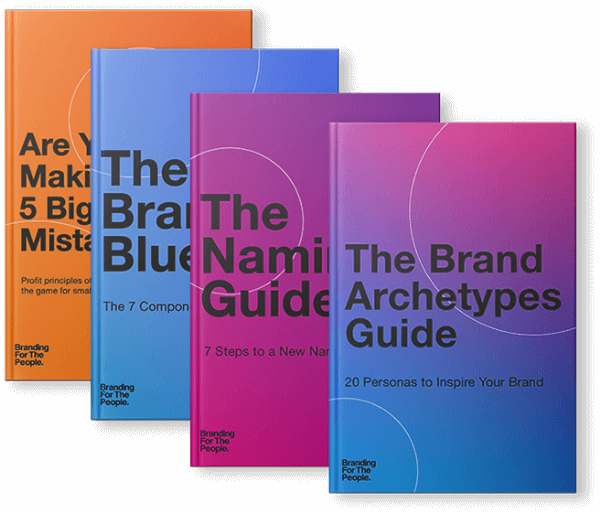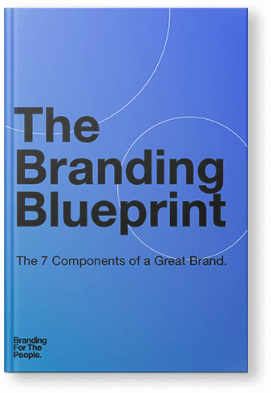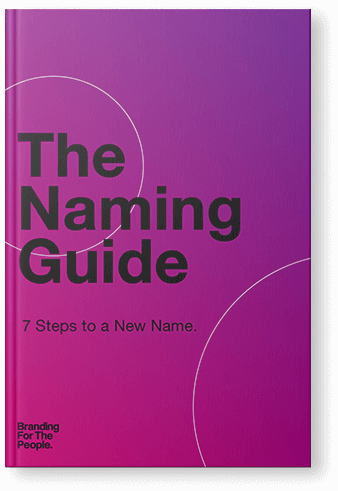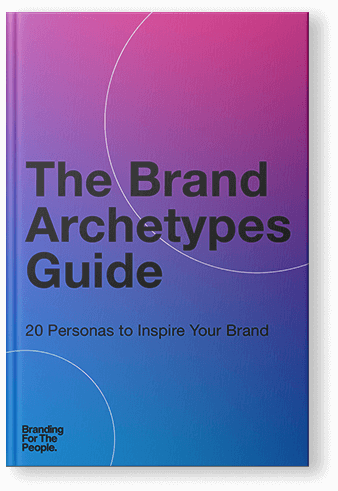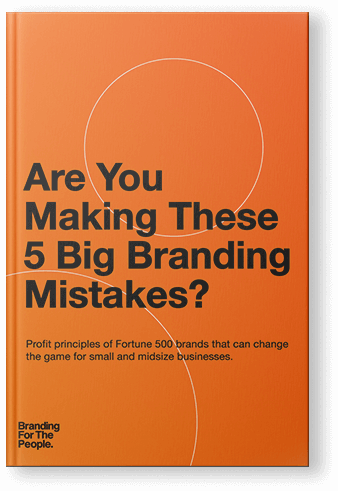Need a personal brand?
Is building a personal brand the most profitable strategy for your business? Do you need a personal brand? Building a personal brand seems to be an increasingly growing hot topic.
It’s caught the attention of entrepreneurs, corporate executives, and employees, particularly because it’s commonplace to find well-heeled articles online, including Entrepreneur’s 5 Reasons Personal Branding is Non-Negotiable for 2018 or Inc. Magazine’s How to Build a Personal Brand (and Why You Need One)!
And, even this Forbes article that teaches 7 Things You Can Do To Build An Awesome Personal Brand.
Here’s the thing. You don’t need to start building a personal brand.
You may want a personal brand, but this post is about helping you decide whether or not you need one.
Let’s explain. Since we primarily speak to entrepreneurs and small business owners, we will address this in the context of these audiences.
Below are 4 important and strategic questions to ask yourself BEFORE drinking the Kool-Aid that you MUST build a personal brand — and certainly before you hire someone who claims to help you build your personal brand.
Question #1: WHY do you want to create a personal brand?
Let’s get crystal clear on the motivation to create a personal brand.
Has anyone ever asked you WHY you want a personal brand in the first place?
Or have you fully clarified what you want a Personal Brand to do for you?
Here are some questions to explore. Do you want a personal brand to help you:
- Launch a new business or expand an existing one?
- Get booked on speaking gigs?
- Sell your services to new clients?
- Sell your books or products to new customers?
- Position yourself as an expert or thought leader?
If you answered “yes” to most of these questions, the good news is you’re already off to a good start to potentially needing a personal brand.
If you answered “no” to most or all of these questions — and you simply want to have a personal brand just for the fame and glory, we’ll caution you right now, your personal branding efforts will have a short shelf life.
That said, we have more questions to explore…
Question #2: Are you willing to invest time AND money into building a personal brand (at the expense of building your business brand?)
This question is vital because oftentimes people embark on building a personal brand and don’t really think through the various costs to do so.
Personal branding is an ongoing process and journey that takes time, money, and energy — daily, weekly, monthly, and yearly. Remember, the truest indicator of a real business brand is that a business can generate revenue with AND without the founder (who is typically appointed the personal brand).
If your business CAN’T do that, then maybe what you’ve been doing all this time is actually building a personal brand!
If your business can operate, grow and scale without you, and you’re still weighing the idea of building a personal brand, ask yourself if your business will benefit by having a personal brand MORE than it will benefit by focusing on building the business brand.
Where is your time most profitably spent? As a branding agency committed to inspiring you to create a world-class brand, we advise you to focus your energy on that which will best meet your business goals and your ultimate end-game.
Why? Because building a personal brand takes patience, endurance, and intention. Your time is limited, so you should choose wisely.
Another question to ask yourself…
“Is a personal brand more important to me than a business brand?”
How can you tell? Well you can always tell what’s important to you when you look at two things: your calendar and your bank statements. Look at where you’re spending your time and money and that will give you insight as to what’s most important to you.
If you’re not willing to put the time in AND put your money where your mouth is to build a personal brand, you might want to rethink personal branding as your long-term strategy in your playbook.
A third option (there is always another option, right?) is to do what our private client Malorie Tadimi of Malorie.com did.
She built a personal brand in the context of her business brand. In other words, she built a business, while also making sure her services and methodologies could be delivered by her team, and not her.
Even though her business name caries her last name, her brand isn’t about her per se. Similar to the likes of Ford or Chanel. Once Malorie created the business (and the business brand to support it), it then made sense for her to express her personal brand by hiring a stylist and photographer to capture images of her that best expresses her credibility and personality.



Question #3: How much do you want your personal brand to be the reason your customer buys your product or service?
It is no doubt that we buy from people we trust, like and respect. And, there are many brands such as Steve Jobs, Oprah, Richard Branson, Jeff Bezos, or Elon Musk who can influence and impact our buying decisions. However, while aspirational, not every entrepreneur will achieve the same level of these extraordinary powerhouses.
For the majority of entrepreneurs and small business owners, it’s more important to build a business brand — a brand that is centered around a business, product, program, or service. If you use this approach, you’ll establish a precedent that your clients and customers are buying your products, programs or services because of the trust you’ve build in the brand itself, not just because of you. This is far more long-term thinking and transcends the power of personal branding in it of itself.
So, ask yourself, how much do you really want your sales to be predicated on the strength of your personal brand (as opposed to the strength of your business brand)?
Question #4: Will your brand help you scale or eventually sell your business?
This question is similar to #3. However, the distinction here is about scaling or selling your business (not just about generating sales or revenue).
If your brand relies primarily on you, the ability to scale or sell your business will always be correlated with the strength (and weaknesses) of the attributes of your personal brand. And, the degree to which your values are aligned with the values of the personal brand.
We all know that we’re likely to buy from companies who have CEOs that admire, respect and love.
Conversely, we may not buy from companies who have CEOs we strongly disrespect and hate (we know that’s a strong word, but think about it, have you ever discontinued buying from a company because you hated the CEO or founder — or what he or she represented or stood for?
Another angle to think about is whether or not your company would fall apart without you at the helm?
If you get sick, will your company be ill as well? If you want other leaders in your company to be part of your company’s growth plan, then it would better serve you to have a brand that’s not just about you. Instead, build a brand that is about a bigger mission, purpose, or movement.
For example, our friend, Tucker Max, a New York Times Best-Selling Author of several controversial and entertaining non-fiction books including I Hope they Serve Beer in Hell and Assholes Finish First, strategically launched and scaled an entirely new business and brand (Scribe) which has nothing to do with his own personal brand as Tucker Max.
Rather than relying on the positive and/or negatives of his personal brand, Tucker created Scribe with a bigger purpose and mission — to unlock the world’s wisdom through a new book creation process that avoids the time-consuming and painful nature of traditional writing and publishing.
Tucker can’t sell his personal brand as an author, unless it is just the royalties, which probably won’t continue to grow unless he authors another book, but he can certainly sell Scribe if he chooses to. And that business brand can certainly grow with or without Tucker Max, the personal brand.
Takeaway
Personal branding can be an important and game-changing strategy to grow your business, but it comes with some pros and cons. Before embarking upon building a brand, take a step back and determine whether or not building one will help or hurt your long-term business strategy, scaling strategy, or exit strategy.



